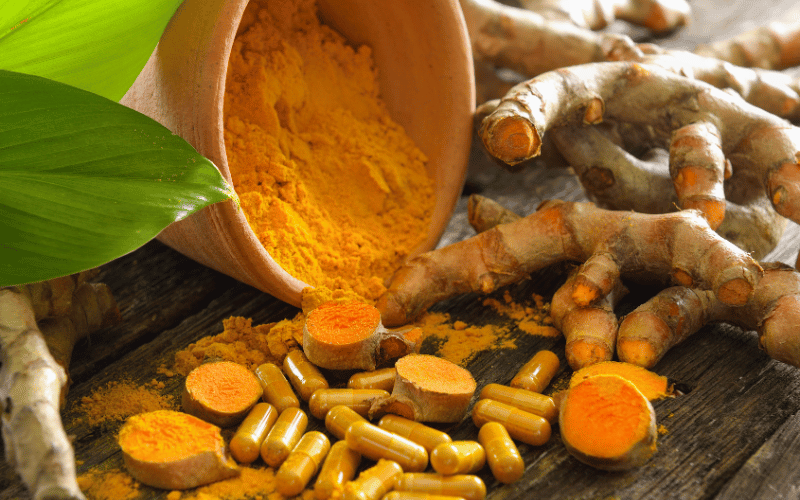5. Turmeric: The Golden Spice with Healing Powers

Turmeric, a staple in many Asian cuisines, is more than just a flavor enhancer. Curcumin, the active compound in turmeric, has been studied extensively for its anti-inflammatory properties. This makes turmeric a promising addition to the diet of those with duodenitis.
Firstly, curcumin’s potential in reducing inflammation is noteworthy. Multiple studies have shown that this compound can inhibit various molecules that play a role in inflammation. By doing so, curcumin can help in alleviating some of the symptoms and discomfort associated with duodenitis.
Apart from its anti-inflammatory properties, turmeric also possesses antioxidant capabilities. It neutralizes free radicals in the body, preventing them from causing further damage. This dual action of curcumin – both as an anti-inflammatory and an antioxidant – amplifies turmeric’s appeal as a dietary choice.
But the wonders of turmeric don’t end there. It’s also known to promote bile production, aiding in digestion. This can be beneficial for duodenitis patients, ensuring that fats are digested more efficiently and don’t aggravate the condition. (5)